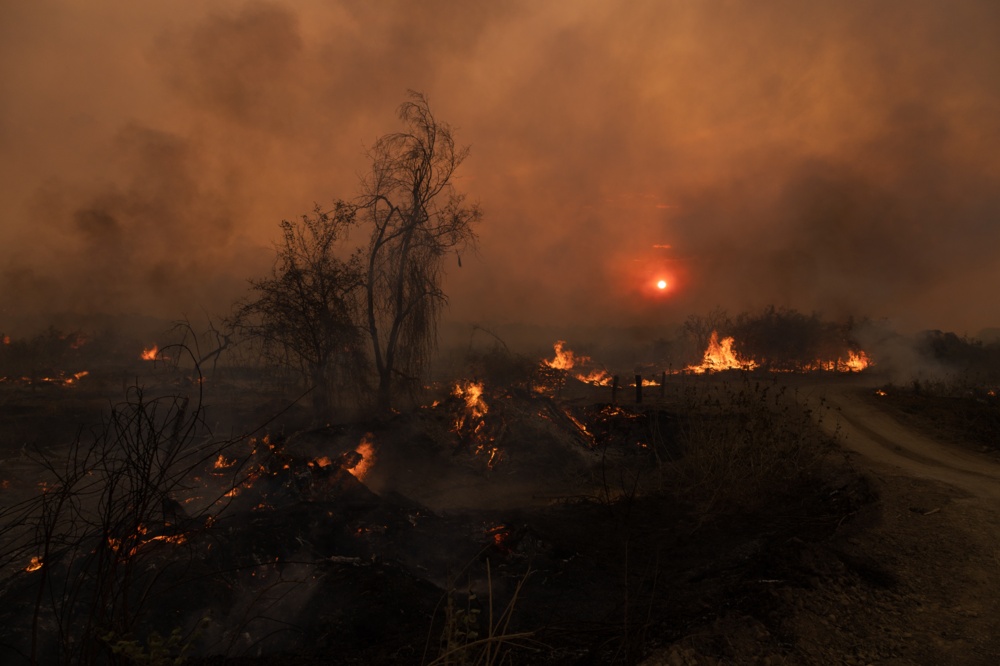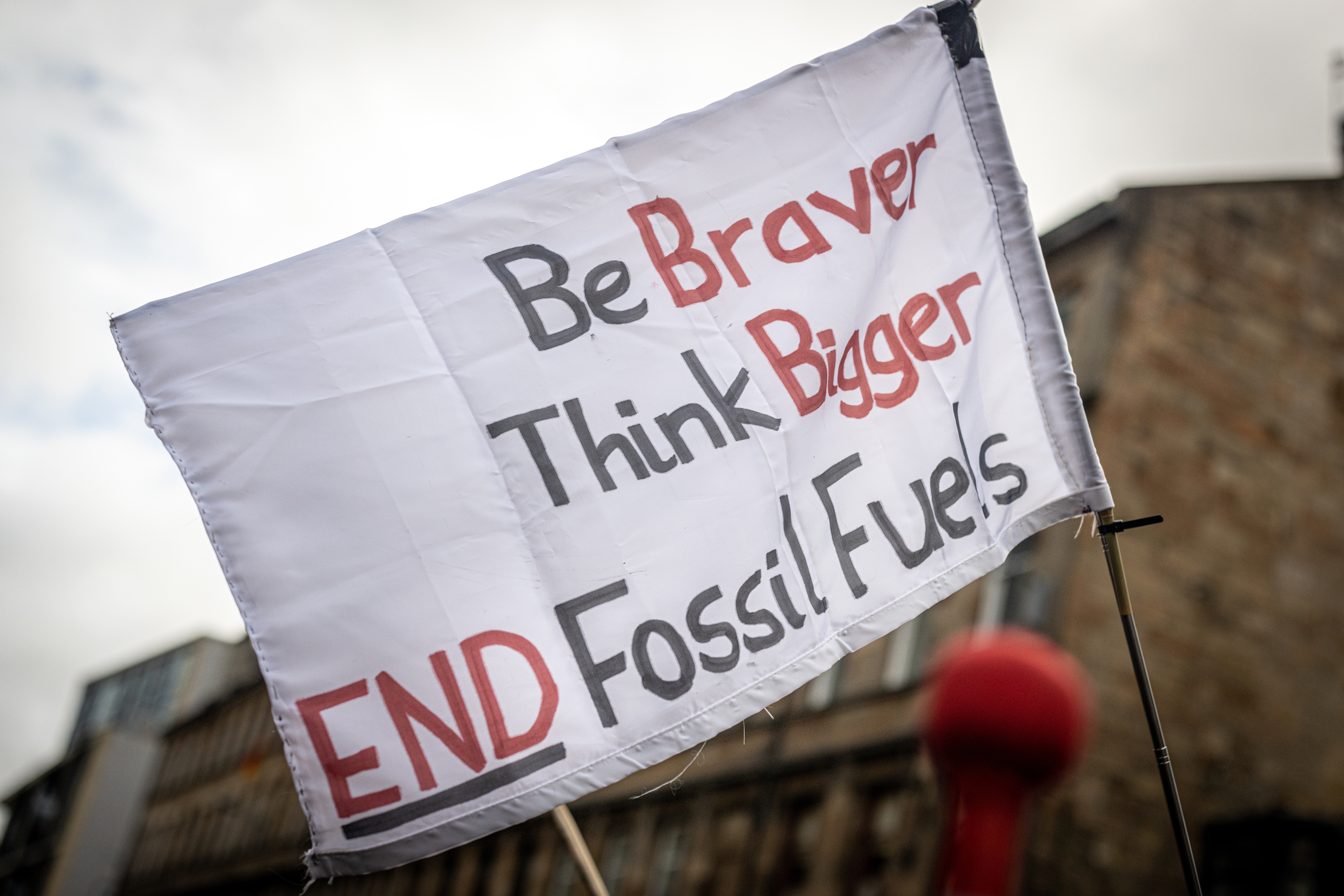
Time’s running out on decarbonisation, says IPCC: How we move forward
A lack of political ambition from world leaders to implement existing climate solutions has put us on a pathway to climate disaster, as evidenced by the recently released IPCC AR6 Synthesis report. It offers a final warning which world leaders must not ignore.
Lost on the path to 1.5ºC
A recent UN environment report found there is “no credible pathway to 1.5ºC in place.” Greenhouse gas emissions must peak in 2025 at the latest and be reduced by 43% by 2030. If we exceed 1.5ºC, we will likely trigger multiple climate tipping points, with dangerous and irreversible impacts for humanity.
This does not have to happen, but we need real, rapid emissions cuts now to ensure we do not blow past the point of no return. However, we are currently not decarbonising fast enough.
Not enough countries have updated their nationally determined contributions since the start of 2022. Wealthy nations like the UK and the US have failed to honour their climate finance pledges. The world has been ravaged by repeated climate disasters, such as flooding in Pakistan and the Horn of Africa's deadly drought. We must finally start taking the climate crisis seriously, putting mitigation and climate justice at the heart of government policy.
World leaders must take ambitious, radical action, cutting ties with carbon-intensive industries and investments once and for all. It will not be easy, as carbon has crept into every aspect of our economies and societies. However, contrast this against the cost of inaction. We are not yet at 1.5ºC, and millions of people are already suffering around the globe, overwhelmingly in the countries which have done least to drive this crisis.
Lack of political will
So far, we have seen a lack of courage and political ambition among world leaders to take the action we need. Recent crises, such as the Russian invasion of Ukraine and the subsequent global energy crisis, have slowed decarbonisation. Soaring energy prices saw many nations actively supporting more oil and gas extraction, yet these desperate measures would have been unnecessary with greater investment in renewables in the past.
In the United States, the world’s largest historic emitter, a climate win like the Inflation Reduction Act is bittersweet. This largest federal clean energy investment in US history is tied with drilling and pipeline deals, as well as outsized impacts on communities already suffering grave environmental injustices. The Biden administration has also announced new steps to restrict offshore and onshore drilling while also approving a colossal new oilfield in Alaska.
China, the world’s largest current emitter, has committed to zero carbon emissions by 2060 and has reduced emissions significantly – but China’s goals are still considered “highly insufficient” by the Climate Action Tracker and approvals of coal power plants are surging.
Instead of viewing the invasion and energy crises as a wake-up call to shift towards renewable energy, many countries have fallen back on old habits. If our leaders, particularly the leaders of the two largest emitting countries, do not decarbonise at a faster rate, the entire world will continue to suffer.
Whole-of-society change
We cannot rely on net zero pledges, or technology, to save us. Net zero allows fossil fuel companies, big agriculture and financial institutions to continue business as usual. We must reach zero carbon, but neocolonial carbon offset programs or waiting for carbon removal technologies that have not been invented yet are not the answer. We must reject this greenwashing and actually cut our emissions.
We need a speedy, fair transition to zero carbon. This means no new fossil fuel projects and the rapid phase out of current fossil fuel subsidies and projects. We must make vastly more public finance available for a renewable energy transition and invest in nature-based solutions, protecting biodiversity and allowing wildlife to sequester carbon.
Climate finance must be transferred from the Global North to the Global South to assist in a fair energy transition. At COP27, important progress was made on climate finance but no agreement was made on decarbonisation – this failure only pushes us closer towards the point of no return.
IPCC report
The most recent warning from the IPCC makes it clear that we are not on track to end this crisis. Every incremental amount of warming will have a direct, damaging impact on the environment and human beings.
However, the report also says that we have the time, knowledge and technology to put an end to the climate crisis and build a more just society. This will require genuine, effective and swift change to ensure climate justice. In the UN Secretary General António Guterres’ words, “The climate time bomb is ticking. But today’s report is a how-to guide to defuse the climate time bomb. It is a survival guide for humanity.”
Decarbonisation will be the greatest investment we can make into our collective futures. Limiting global heating to 1.5ºC by 2035 is no small feat, but the solutions exist - we just need the political will to make them a reality. The next few years are a "last chance for humanity", and we do not have the luxury of despair. Instead, we must demand ambition, action and with it, a better future.
This piece was originally published by Fair Planet and is shared here with permission.
SIGN UP FOR OUR EMAILS AND STAY UP TO DATE WITH EJF

